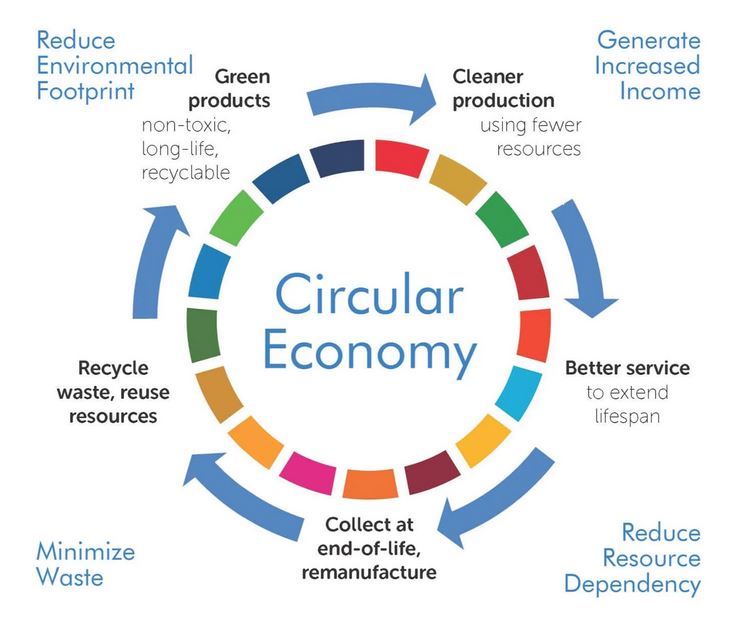
MOVING AWAY FROM THE 'TAKE-MAKE-DISPOSE' MODEL
Current Affairs for 26th July, 223 from "THE HINDU".
MOVING AWAY FROM THE 'TAKE-MAKE-DISPOSE' MODEL
Resource efficiency and circular economy are powerful strategies that can effectively reduce dependence on natural resources, curtail waste and encourage sustainable practices.
Recognizing the need to switch from the 'take-make-dispose' to 'reduce-reuse-recycle' model, India had prioritized 'Resource Efficiency and Circular Economy' as one of the three core themes for deliberation in the G20 forum.
India has embraced four priority areas for the circular economy: circularity in the steel sector; Extended Producer Responsibility (EPR); circular bioeconomy and establishing an industry-led resource efficiency and circular economy industry coalition.
Most G-20 countries have committed to net zero ambitions and are working to mitigate GHG emissions. Globally, about 7% of energy sector emission is attributed to iron and steel production. Transitioning towards a circular steel sector is a key strategy to tackle steel sector emissions. India's presidency document for knowledge exchange on the 'Circular Economy in the Steel Sector' is a potential blueprint for a net zero pathway, reducing resource utilization and minimizing waste.
As the G20 President, India emphasizes on the EPR framework as its effective implementation plays a pivotal role in the recycling infrastructure. With over 20,000 registered Producers, Importers, and Brand Owners (PIBO) and over 1,900 plastic waste processors on the centralized EPR portal, India boasts of one of the largest EPR frameworks.
India has also notified comprehensive rules for e-waste and battery waste management. Biowaste, such as municipal and industrial waste, has also become a global issue as much of it is burned causing pollution and global warming. But, combined with crops biowaste can serve as valuable primary raw materials and viable substitutes for mineral resources.
India has been working towards the adoption of biofuels. PM JI-VAN Yojana provides financial support to integrated bio-ethanol projects to set up 2G ethanol projects. 2G technology produces bioethanol from waste feedstock such as crop residues.
India has also made it mandatory for coal-burning thermal plants to use a 5% blend of biomass along with coal.
Other schemes in this area include the Galvanizing Organic Bio-Agro Resources (GOBAR) Dhan Scheme and the Sustainable Alternative towards Affordable Transportation (SATAT) Scheme.
India's G20 presidency focuses on an industry coalition to advance circular economy practices. It aims to achieve enhanced technological collaboration, build advanced capabilities across sectors, mobilize de-risked finance and facilitate a proactive private sector engagement.
